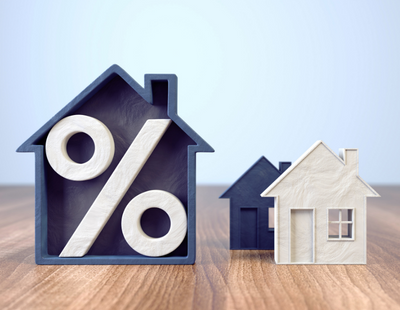Interest rates could peak at 6.5%, an economist has warned, but it will take a while to hit the housing market.
Azad Zangana, senior European economist and strategist for Schroders, said while the asset manager had previously thought the Bank of England would refrain from aggressive interest rate hikes, the environment has changed and so has his view.
He said higher than expected inflation and the latest interest rate rise suggest the Bank of England is far from getting on top of bringing the cost of living measure down.
Consequently, he said, Schroders now anticipates interest rates to peak at 6.5% by the end of 2023, a full 1.5 percentage points higher than its previous forecast of 5%.
Schroders is predicting that rates will rise by 50 basis points (bps) in August and September, before slowing to 25 bps increments in November and December.
He said: "Unfortunately, the Bank of England is no longer able to wait and see how the interest rate rises so far will affect the economy.
“We also cannot rule out that the path the bank seems now to find itself on, with the potential to disproportionately impact the housing market, will not result in financial stability issues.”
He added that interest rates work with long and variable lags, and it is not exactly clear yet what the effect of the 13 consecutive rate rises seen so far will be.
Zangana added that the financial markets have already begun to consider rates peaking at 6.5%, with mortgage pricing rising.
He said last week’s interest rate rise confirmed that the Bank of England lacks the credibility to adopt a wait and see approach as being taken by the US Federal Reserve, which paused rate hikes this month.
Zangana said: “This suggests that the MPC will no longer target a level of rates, but instead focus on the rate of change in rates. It also suggests it will respond to data as it comes in, not too dissimilar to the approach of the European Central Bank.
“Rising rates always affect the housing market with a lag, but this time around there are a number of reasons why the lags will be even longer and more variable than in the past.
“Notably, UK households have taken advantage of very low interest rates and increased fixed-term mortgage products to reduce their near-term exposure.”
The share of households with a fixed-rate mortgage of two years or more has risen from 16% to 63% between 2012 and December 2022, he added.
Zangana said: “The Bank of England is under attack from those suggesting that interest rates should not be raised at all if they’ve not worked so far in lowering inflation.
“However, the chancellor has publicly backed further hikes in recent days, while the prime minister said at the weekend that taming inflation through higher interest rates should be the key priority.
“We agree, but unfortunately taming inflation is probably now going to involve inflicting more pain than it might otherwise have done."
https://www.schroders.com/en-gb/uk/intermediary/insights/uk-should-brace-for-6-5-interest-rates-here-s-why-we-ve-raised-our-forecast/
















.png)


.jpg)
.jpg)





%20-%20IMAGE%20Client%20Accounting%20%E2%80%93%20what%20are%20your%20options.jpg)


.png)
.png)
.png)
%20(002).png)






%20(002).jpg)



.png)




Join the conversation
Jump to latest comment and add your reply
Yet another comment from the "Department For Stating The Bl**ding Obvious"! My money is on 7% by the end of the year and don't expect rates to come down any time soon. This is going to run for years now.
Yet another comment from the "Department For Stating The Bl**ding Obvious"! My money is on 7% by the end of the year and don't expect rates to come down any time soon. This is going to run for years now.
Unfortunately there is going to be a complete meltdown in the housing market at these rates combined with high asking prices which cannot continue. If you take into consideration the average apartment in Manchester is priced around £250,000 with monthly service charge of £300 plus council tax £156 and Electric at £250 thats over £700 on top of your £1520 mortgage payment. You knock £25,000 off the asking price and the mortgage reduces by £170, hardly a saving.
Reading in the Economist this week inflation is increasingly the result of poor judgements. Banks link their fixed-rate mortgages to market expectations for interest rates as central banks face some agonising decisions.
Although the inflation figures in Britain are not truly a shock, what has gone so horribly wrong? Old excuses imported, because of war, snarled-up supply chains or high global food prices no longer wash.
Our labour force is still below pre-pandemic levels and no shortage of jobs to go around companies are competing on wages with double-digit rises just to attract new talent.
It's apparent that fewer Britons have a mortgage than in previous tightening cycles and in any case many have fixed rates for longer, so the effects so far have been limited. So if interest rates arent working theres one other option: Putting up taxes.
Please login to comment